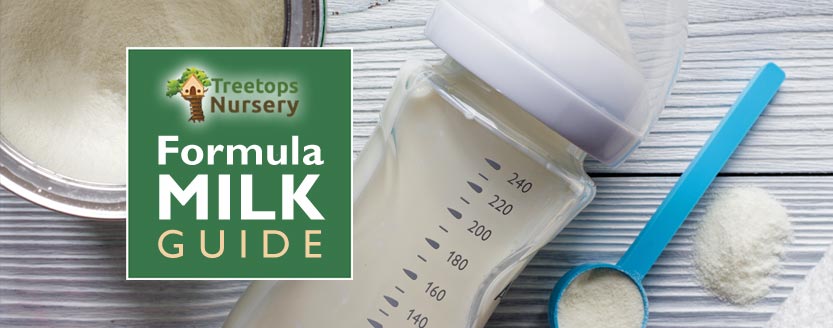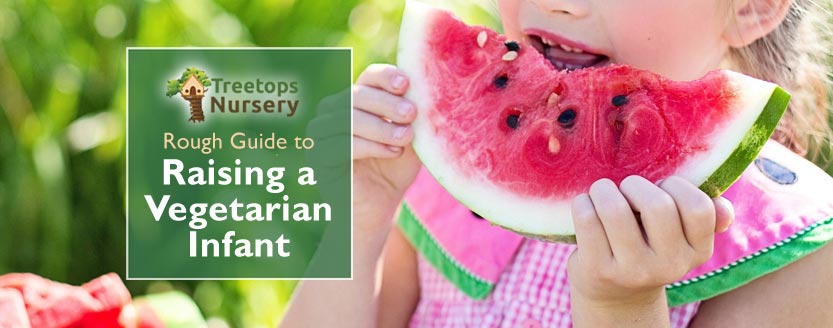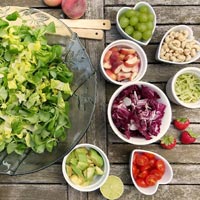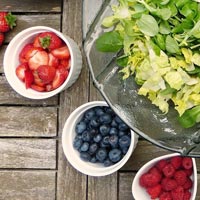
 Last month, we mentioned what a huge topic formula milk is. So, in this post, we thought we’d explore all the different types of milk available to infants in the UK.
Last month, we mentioned what a huge topic formula milk is. So, in this post, we thought we’d explore all the different types of milk available to infants in the UK.
As a rule of thumb, the best type of milk for your baby is breast milk, given in tandem with suitable Vitamin D supplement drops. We’ve written a separate post about the benefits of breast milk here. Suffice it to say, though, that breast milk is best and has an enormous number of health benefits to both mother and child, including many that simply can’t be achieved by formula milk. That said, there are many reasons why formula milk may be the only viable option and we’ll explore the different types available in our Formula Milk Guide below.
First, though, some words of warning. There are several types of milk that you should never give to your baby if they’re under 12 months old.
Milk Types to Avoid Giving Babies Under 1
- Condensed milk a.k.a. ‘Evaporated milk’ should be avoided. This is milk (usually from cows) that has been thickened by evaporating off about 60% of the water. It is usually also sweetened by adding sugar and has a slightly darker colour than standard milk.
- Dried milk a.k.a. ‘Powdered milk’ or ‘Milk powder’ should also be avoided. This is liquid milk that has been evaporated until it’s turned into dry powder.
- Cow’s milk, goat’s milk and sheep’s milk should also not be given to babies under 12 months of age except when used in cooking and only then when it’s been pasteurised. After the age of 1 it’s OK to drink so long as it’s pasteurised.
- Soya milk, Oat milk, Rice milk and Almond milk, along with other similar drinks described as ‘milks’, should be avoided by babies under one.
- Rice drinks should also be avoided right up to the age of 5 due to the presence of arsenic.
What Types of Formula Milk Can Your Little One Drink?
 Baby and infant formula milk comes ready-made in liquid form or as a powder that needs to be carefully and hygienically made up. The liquid variety is usually the more expensive of the two and needs to be used sooner, due to its shorter shelf life. Whichever is used, labels should be carefully checked to ensure suitability for the age of the particular baby/infant in question.
Baby and infant formula milk comes ready-made in liquid form or as a powder that needs to be carefully and hygienically made up. The liquid variety is usually the more expensive of the two and needs to be used sooner, due to its shorter shelf life. Whichever is used, labels should be carefully checked to ensure suitability for the age of the particular baby/infant in question.
Note too, that there are many kinds of formula milk and one could argue that many of them are simply attempts by manufacturers to introduce niche products that appeal to a particular market or situation. As you’ll see, however, according to the NHS, some of the suggested benefits have no compelling evidence to support them.
Parents can look out to see if any particular types or brands of formula milk disagree with the baby and consider switching if so. It’s wise in these cases to take advice from your Health Visitor or midwife.
- First Infant Formula Milk, a.k.a. ‘First Milk’ is the first type formula milk that babies should be given unless otherwise directed by a GP or Health Visitor. If they’re not being given breast milk, your baby can drink this from birth right up until they are 12 months old. It can also be given while the baby is weaning onto solids (usually from 6 months of age). It’s based on cows’ milk and contains easy-to-digest proteins (casein and whey) along with all the vitamins and nutrients that your growing baby needs.
- Goats’ Milk Formula is an alternative to cows’ milk-based formula and comes in several varieties, each with the same standards and nutritional values as the corresponding cows’ milk formula. It’s also suitable from birth. However, if a baby or infant is allergic to cows’ milk, they are just as likely to be allergic to goats’ milk formula due to the close similarity of the proteins involved.
- Hungrier Baby Formula a.k.a. ‘Hungry Milk’ is, as the name suggests, marketed as suitable for hungrier babies and contains a higher proportion of casein protein. However, parents should ask their Health Visitor or midwife for advice before giving their infant this type of formula milk. They should also know that there is no compelling evidence that it has any benefits compared to the standard formula milk option.
 Comfort Formula is another type of formula milk based on cows’ milk, but the milk proteins it contains are already partially broken down (partially hydrolysed). It is marketed as being easier for the infant to digest and, as such, a formula milk that will reduce the chance of constipation or colic. However, there is no evidence to back up such claims. It’s suitable from birth but parents should ask for advice from their Health Visitor or midwife before giving their baby this type of milk, and certainly not use it if their infant is allergic to cows’ milk.
Comfort Formula is another type of formula milk based on cows’ milk, but the milk proteins it contains are already partially broken down (partially hydrolysed). It is marketed as being easier for the infant to digest and, as such, a formula milk that will reduce the chance of constipation or colic. However, there is no evidence to back up such claims. It’s suitable from birth but parents should ask for advice from their Health Visitor or midwife before giving their baby this type of milk, and certainly not use it if their infant is allergic to cows’ milk.- Hypoallergenic Formula Milk should be used only under professional medical supervision but, when approved for use, is suitable from birth. This type of milk contains fully broken down (hydrolysed) milk proteins and helps when your baby is allergic to cows’ milk-based formula milk.
- Anti-Reflux Formula a.k.a. ‘Staydown Milk’ is thicker than standard formula milk and is designed to prevent babies from bringing up their milk during or after feeds. It’s another type of formula milk that is deemed suitable from birth but only under the professional medical supervision of a Health Visitor, GP or midwife. It’s also critically important to follow instructions on how to make it up or, better still, speak to one of the aforementioned health professionals about it due to temperature and storage safety issues inherent in this particular type of formula.
- Lactose-Free Formula is designed for use by babies who are lactose intolerant, although this is rare in babies. It should be used only under the medical supervision of a Health Visitor, midwife or GP.
- Follow-on formula milk is suitable for babies aged 6 months or older (never less) although evidence suggests that babies are better off continuing with First Infant Formula Milk for the whole of the first year rather than switching to follow-on formula at 6 months. Ask your Health Visitor or midwife for advice if considering switching to follow-on formula and always read the label carefully.
- Good Night Milk is another type of formula milk that’s available. Marketed as a milk just for bedtime, it contains cereal, but there is no evidence to suggest it has any benefits whatsoever over standard formulas. Certainly it should never be given to babies less than 6 months of age so, as with so many of these special formula milks, ask for advice from your Health Visitor or midwife before giving your infant this type of formula milk.
- Soya Formula Milk is, in theory, suitable for babies aged 6 months or older. It may be marketed as an alternative to cows’ milk formula for those who have an allergy. However in reality, it should only be given to a baby or infant when prescribed by a Health Visitor or GP. That’s primarily because soya contains phytoestrogens, which mimic oestrogen, the female hormone. As such, there is a concern amongst medical professionals that the developing reproductive system in babies and young children could be adversely disrupted. Soya-based formula milk also contains glucose, a sugar that can potentially harm teeth.
- Growing-Up Milk a.k.a. ‘Toddler Milk’ is marketed as being suitable for toddlers aged 1 year or older and as an alternative to whole cows’ milk. However, there is no proof to suggest that it has any benefits over cows’ milk, so parents are advised to seek advice from their Health Visitor if they’re considering giving it to their child.
Milk After 12 Months
 From the age of 1: your baby can move onto drinking whole pasteurised cows’ milk as their main drink (or alternatively sheeps’ or goats’ milk so long as it’s also pasteurised) as part of a healthy, balanced diet. It should not be given to children before they’re one because it does not contain enough iron.
From the age of 1: your baby can move onto drinking whole pasteurised cows’ milk as their main drink (or alternatively sheeps’ or goats’ milk so long as it’s also pasteurised) as part of a healthy, balanced diet. It should not be given to children before they’re one because it does not contain enough iron.- From the age of 2: they can switch to semi-skimmed cows’ milk if they’re growing well for their age, are not underweight, are a good eater and have an overall healthy, balanced diet.
- Do not give children skimmed or 1% milk if they’re under the age of 5. It simply does not contain enough calories for their requirements.
- Daily vitamin supplements are recommended from the age of 6 months up to the age of 5 although do not need to be taken during their younger period when they’re drinking the requisite amount of age-appropriate formula milk because that will already be fortified with the vitamins. Otherwise, though, vitamin A, C and D are available for children in drop form until they’re five.
Looking for Outstanding Nurseries & Pre-Schools near Willesden or North West London?
 We are Treetops Nursery in Willesden, London NW10, and offer outstanding childcare services for babies and children up to five. We’re open Monday to Friday, 51 weeks of the year. If you are looking for the best nurseries, pre-schools and childcare services near Willesden, Willesden Green, Harlesden or Kensal Green, please contact Treetops Nursery and we’ll be happy to tell you more, answer any questions and even show you/your child around. Please choose a button below to start the ball rolling, while a few nursery spaces remain:
We are Treetops Nursery in Willesden, London NW10, and offer outstanding childcare services for babies and children up to five. We’re open Monday to Friday, 51 weeks of the year. If you are looking for the best nurseries, pre-schools and childcare services near Willesden, Willesden Green, Harlesden or Kensal Green, please contact Treetops Nursery and we’ll be happy to tell you more, answer any questions and even show you/your child around. Please choose a button below to start the ball rolling, while a few nursery spaces remain:

 More and more parents are bringing up youngsters as vegetarians these days, so we thought we’d put together a rough guide to raising babies, toddlers and preschoolers as vegetarians. When doing so, certain considerations will need to be made, including ensuring that meals are nutritious, containing all the necessary food groups, vitamins and minerals needed by the very young.
More and more parents are bringing up youngsters as vegetarians these days, so we thought we’d put together a rough guide to raising babies, toddlers and preschoolers as vegetarians. When doing so, certain considerations will need to be made, including ensuring that meals are nutritious, containing all the necessary food groups, vitamins and minerals needed by the very young. The good news is that formula milk that’s suitable for vegetarians is available. Parents may ask their midwife or health professional for any recommendations in regard to types or brands, particularly if one formula milk disagrees with the baby. However, whichever brand and type is chosen, the formula milk must be formulated for the baby’s specific age. This is usually obvious on the product label.
The good news is that formula milk that’s suitable for vegetarians is available. Parents may ask their midwife or health professional for any recommendations in regard to types or brands, particularly if one formula milk disagrees with the baby. However, whichever brand and type is chosen, the formula milk must be formulated for the baby’s specific age. This is usually obvious on the product label. From around the age of 6 months, your baby will usually start the process of weaning off of milk and begin to eat solid foods, albeit given in puréed or liquidised form initially. This is when parents then need to be mindful of their child’s nutritional needs and this is even more pertinent when bringing up a child as a vegetarian.
From around the age of 6 months, your baby will usually start the process of weaning off of milk and begin to eat solid foods, albeit given in puréed or liquidised form initially. This is when parents then need to be mindful of their child’s nutritional needs and this is even more pertinent when bringing up a child as a vegetarian. Well, tofu and other soya products will contain good quantities of protein.
Well, tofu and other soya products will contain good quantities of protein. Iron is essential for growing children and can be found in many of the foods mentioned above. That said, it’s worth mentioning that some foods block the absorption of iron. Such foods include tea as well as whole grains and legumes containing ‘phytates’, dairy products containing ‘casein’ and eggs and dairy products that contain particular forms of calcium. The simple solution to many of these is as follows:
Iron is essential for growing children and can be found in many of the foods mentioned above. That said, it’s worth mentioning that some foods block the absorption of iron. Such foods include tea as well as whole grains and legumes containing ‘phytates’, dairy products containing ‘casein’ and eggs and dairy products that contain particular forms of calcium. The simple solution to many of these is as follows: